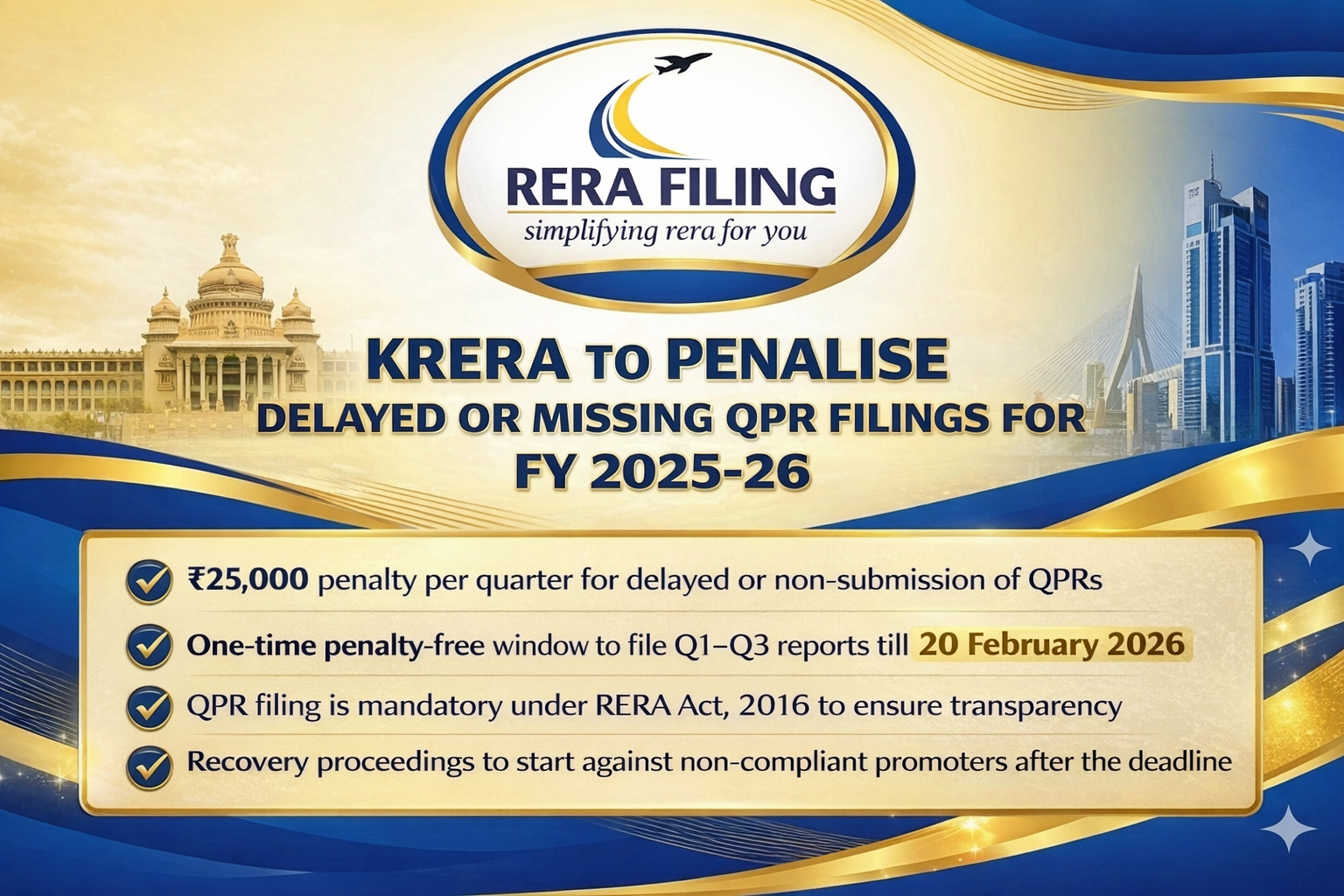
- General
- Tuesday 24th September 2019
- Author: Shreya Uppal
Highlights
-
Any appellate authority is created in the system to bring more transparency in the law structure.
-
All the matters pending with the Interim Appellate Tribunal shall stand transferred to the proper real Appellate Tribunal so established.
-
The disposal of the appeal has to be made within 60 days from the receipt of such appeal. However, the reasons need to be recorded for not disposing of the appeal within the said period.
A person unhappy with the decision of the concerned RERA Authority can initiate the procedure of applying an appeal to the Appellate Tribunal. That person can be the homebuyer, the developer or the real estate agent can be any 3 of them. Any appellate authority is created in the system to bring more transparency in the law structure.
General points relating to the Real Estate Appellate Tribunal
1. As per Section 43 (1) of the RERA Act, 2016, within 1 year from the concerned established RERA Act, the appropriate Government shall establish the Appellate Tribunal in that State/ Union Territory.
2. There shall be atleast 1 Judicial member and 1 Administrative to Technical member in every bench of the Appellate Tribunal.
3. This provision has also been provided that 2 or more states can jointly if deem fit can establish 1 single Appellate Tribunal.
4. An Interim Appellate Tribunal can also be established for the time being until the establishment of full-fledged Appellate Tribunal to handle the workload to date.
5. All the matters pending with the Interim Appellate Tribunal shall stand transferred to the proper real Appellate Tribunal so established.
6. As per Section 43(5) of the RERA Act, 2016, any person including the association of allottees or any voluntary consumer association, aggrieved by the decision of the Authority or Adjudicating officer can file an appeal to the concerned jurisdictional tribunal.
7. In case a promoter feels the need to file an appeal with the Appellate Tribunal, that can only be done if he firstly deposits atleast 30% of the penalty or the total amount to be paid to the allottee including interest and compensation imposed on him for the said appeal to be heard.
8. Every appeal shall be entertained within a period of 60 days from the date on which copy of the direction or order made is received by the aggrieved person with the accompanying fees.
9. After being satisfied with the existence of the sufficient cause for not filing it within the period described, the tribunal may entertain the appeal after the expiry of 60 days.
10. After giving the opportunity of being heard, it can pass the interim orders too after receiving such appeal.
11. The copy of every order shall be passed by it to every party involved.
12. The disposal of the appeal has to be made within 60 days from the receipt of such appeal. However, the reasons need to be recorded for not disposing of the appeal within the said period.
13. As per Section 57(1) of the RERA Act, 2016, every order made by the tribunal shall be executable by the Appellate Tribunal as a decree of the civil court, and for this purpose, it has all the powers of a Civil Court.
14. It may also transmit any order made by it to a Civil court which shall be bound on the Civil Court.
15. As per Section 55 of the RERA Act, 2016, any vacancy or defect in the Constitution of the Appellate Tribunal, any defect in the appointment of a member of the tribunal, or any irregularity in the procedure of the Appellate Tribunal, shall not invalid the act or proceeding of the Appellate Tribunal by mere reason of it.
16. Section 53 of the RERA Act, 2016, describes the powers of the Tribunal, as the tribunal shall not be bound by the procedure laid down by the Code of Civil Procedure, 1908, but shall be guided by the Principles of Natural Justice.
17. It shall also not be bound by the rules of evidence contained in the Indian Evidence Act, 1872.
18. For the purpose of discharging their functions, it has the same powers as are vested in a Civil Court under the Code of Civil Procedure, 1908 in the matters like: reviewing its decisions, receiving evidence on affidavits, requiring the discovery and production of documents, summoning and enforcing the attendance of any person and examining him on oath, etc.
19. The Appellate Tribunal shall consist of a Chairperson and not less than 2 Whole-time members- A Judicial Member and the other shall be a Technical or Administrative member, to be appointed by the concerned Government of that state.
For Project Registration, Click here.
Tags: agent, defect, promoter, allottees.
Copyright © 2026 RERA Filing. All rights reserved.

 Rera Act
Rera Act
 Maharashtra
Maharashtra
 Karnataka
Karnataka
 Telangana
Telangana
 Andhra Pradesh
Andhra Pradesh
 Delhi
Delhi
 Uttar Pradesh
Uttar Pradesh
 Haryana
Haryana
 Gujarat
Gujarat
 Bihar
Bihar









